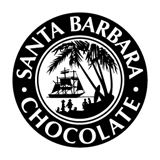The Global Chocolate Market
From all appearances it looks like things are changing in the global chocolate market and changing fast! Raw cacao has been trading at $3,200 per 2,000 lbs on the New York Stock Exchange and continues to go up. World wide there have been issues with cacao growing associated with climate change. The cacao orchards just haven't been producing the fruit to meet current demand. This is part of the continued motivation behind some of the big chocolate companies to keep adding more and more cheap fillers to their chocolate -it helps keep their costs down.
Even with prices influx, chocolate is still one of the very best values anywhere, and as a consumer who enjoys chocolate should continue to only choose pure chocolate that hasn't been cheapened with fillers. This why I always recommend buying from the small artisan chocolatier that cares about quality and ingredients - basically companies like us Santa Barbara Chocolate Co.
If you consider how much effort goes into making 1 chocolate truffle or 1 chocolate bar it makes sense why high quality pure chocolate is the best value around: Cacao is grown in the tropical rain forests at the equator, it is hand picked, fermented and transported along unimproved roads in the country of origin to a port, shipped thousands of miles to a state of the art facility in Europe where the raw cacao is transformed into chocolate couverture. The chocolate couverture is packaged and delivered to distributors and then trucked to smaller artisan chocolatiers who work using time honored labor intensive techniques to transform this chocolate into fresh cream truffles or pure chocolate bars. These truffles and bars are hand wrapped, carefully packed and offered with beautiful presentation. Looking at this lengthy chain of events you can see why high quality artisan chocolate is an incredible value. Honestly, it is pound for pound one of the best values anywhere really.
Here are two articles from Reuters that helps sum up what is happening in the current cocoa markets and you can basically see what is forecast.
Fall 2009
ABIDJAN (Reuters) - The world's biggest cocoa supplier, Ivory Coast, closed the book on its worst harvest in at least five years on Monday, and exporters aren't expecting the new season to be any better.
Loads of cocoa beans arriving at ports from the West Africannation's plantations lagged last year by nearly 14 percent, reaching just 1,178,526 tonnes during the October 1 through September 30 season, according to official data.
Weak production from the key world exporter, scarred by a 2002-03 civil war and racked by years of underinvestment, can bolster cocoa prices on the London and New York exchanges by restricting supply to market.
Last year, cocoa arrivals at the main ports of Abidjan and San Pedro hit 1,367,877 tonnes -- the second best performance since the 2004-05 season thanks to good growing weather.
But black pod disease and crumbling infrastructure have weighed heavily on Ivory Coast cocoa output.
Exporters polled by Reuters last week said they projected the 2009-2010 season to run between 1 and 1.15 million tonnes.
During the first four days of the new season, cocoa arrivals hit 6,500 tonnes, according to exporter estimates, well below last year's 9,692 tonnes for the same period.
"The quality is good and there's no evidence of problems with the beans. We hope it continues like that. Last year there were too many problems," said the director of an export company in San Pedro.
LONDON, Oct 5 (Reuters) - Cocoa futures soared to a 24-1/2 year high in London on Monday with fund buying possibly providing the spark to trigger a wave of automatic buy-stops against a backdrop of bullish fundamentals.
Prices on both Liffe and ICE suddenly surged with the U.S. market rising almost $200 within a minute.
"It could have been buying by a big fund (which triggered the rise). We're a bit bemused," one London dealer said.
December cocoa on ICE rose to a peak $3,268 a tonne before the exchange cancelled all transactions at or above $3,256.
The front month ended nearly eight percent higher at $3,240 a tonne after subsequently setting a new peak of $3,259 a tonne.
March cocoa futures in London ended 145 pounds higher at 2,153 pounds a tonne after setting a 24-1/2 year high for the benchmark second month of 2,156 pounds.
NYSE Liffe said all trades in the London market would stand.
Dealers said market fundamentals remained bullish, buoyed by declining production in Ivory Coast and talk that demand may be beginning to revive after a downturn earlier this year.
The world's biggest cocoa supplier, Ivory Coast, closed the book on its worst harvest in at least five years on Monday, and exporters aren't expecting the new season to be any better.
BNP Paribas Fortis, in a report issued last week, forecast a global cocoa deficit of 56,000 tonnes in 2009/10 versus a shortfall of 28,000 tonnes in 2008/09.
"We know there is not going to be enough, it is just (a question of) how far short we fall," one London dealer said.
